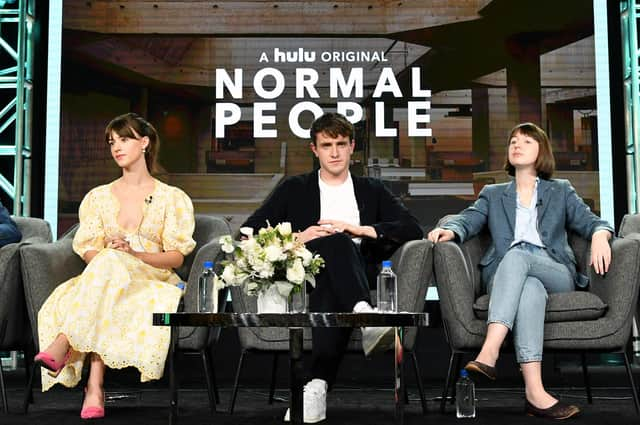Sally Rooney's new book Beautiful World, Where Are You? shows her talent but I wish she'd leave her comfort zone – Laura Waddell


In new novel Beautiful World, Where Are You?, protagonist Alice has been catapulted to international renown, wealth, and awards. In long letters to friend Eileen, she bemoans it.
“When I submitted the first book, I just wanted to make enough money to finish the next one. I never advertised myself as a psychologically robust person, capable of withstanding extensive public enquiries into my personality and upbringing.”
Advertisement
Hide AdAdvertisement
Hide AdAlice has a lot in common with other Rooney women before her. I think of these characters as grown up schoolgirls – neat and tidy in speech and appearance, always tucking hair behind their ears, and complemented by others on being small, thin and pale. (“You’re very small with your clothes off, he said. I don’t think I ever noticed you so small before. She made a moaning noise, shook her head, and said nothing.”)
They tend to dress in prim outfits of natural fabrics (wool jumpers over skirts), shorn from the gauche world of commercial trends but still aesthetically poised enough to be straight out of a Cos commercial.
Partners comment on their aloofness and air of superiority, when they’re not getting enough attention (say, at a party) they grow cold and huffy, but in a sexual situation they are submissive, and quick to emotionally martyr themselves, fatefully resigned to hurt.
While this feels like the best written of Rooney’s novels, firmly establishing the talent behind her precipitous rise to fame, there are weaknesses. We never quite get to the heart of Felix, the love interest of Alice. Alice and Eileen, good, bookish girls both, can be difficult to distinguish.
Their exchanges, filled with theoretical digression (entertaining but implausible – who has the energy to send life updates in the form of mini dissertations?), are a way for the politically conscious Rooney to alternately challenge and defend writing books about relationships.
“In the midst of everything, the state of the world being what it is, humanity on the cusp of extinction, here I am writing another email about sex and friendship. What else is there to live for?”
I don’t disagree. But I’m hoping that, for the next book, Rooney writes further out of her comfort zone. She is skilled in capturing romantic dialogue and tension, but it’s starting to feel all a bit familiar.
One of the most intriguing themes in this book wasn’t the will-they-won’t-they but moments where millennials reckon with religious culture. Simon, the love interest of Eileen, is a Christian, much to the bemusement of the other three. “Can it be that during the service I actually came to admire the sincerity of Simon’s faith? But how is it possible for me to admire someone for believing something I don’t believe, and which I think is manifestly incorrect and absurd?”
Advertisement
Hide AdAdvertisement
Hide AdI’d love to see Rooney expand on this theme, rich for introspection and interrogation. After all, what relationships and religion have in common is loyalty, tests of faith, love, submission, doubt, and belief in something bigger than the solitary unit of the self. She’s certainly got the chops to do it.
A message from the Editor:
Thank you for reading this article. We're more reliant on your support than ever as the shift in consumer habits brought about by coronavirus impacts our advertisers.
If you haven't already, please consider supporting our trusted, fact-checked journalism by taking out a digital subscription.
Comments
Want to join the conversation? Please or to comment on this article.
